Home remedies for gingivitis
As the name suggests gingivitis is a type of bacterial infection which results in inflammation or swelling of the gums, ‘gingiva’ – stands for gums and ‘itis’ – represents infection. If gingivitis is not taken proper care of, it might become severe and result in periodontitis which is one of the most common causes of tooth loss. So, it’s important to know how to get rid of gingivitis at home.
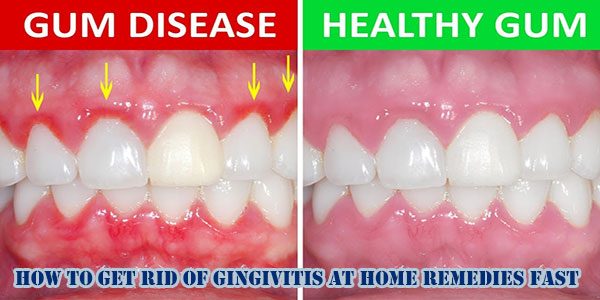
Now you might be wondering why gingivitis happens at all? Some of the very common risk factors which make us susceptible to gum infections are poor body immunity, lack of oral hygiene, eating acidic or sugary sticky foods, not brushing at night, consumption of alcohol in excess, chewing tobacco or smoking, unhealthy lifestyle practices etc.
Let us understand the basic mechanism that leads to gingivitis. Our teeth are attached to the gums and have small gaps and spaces in between. When food accumulates in these spaces and begins to rot or when the bacteria from the tooth plaque or tartar (which is the yellow layer covering teeth), bacteria tend to enter your gums. When this happens these bacteria cause inflammation of gums and they eventually invade and attack the soft tissues and bone present in the dental region. In severe cases, gingivitis can even cause tooth loss.
Some of the very common symptoms that you will experience while suffering from gingivitis are red swollen gums, sensitive teeth, pain during chewing food, loose teeth and change in overall placement and appearance of teeth. The basic treatment for gingivitis includes cleaning the plaque and tartar by utilizing various techniques available such as scaling and laser. Your doctor might also write some oral antibiotics or antibiotic mouthwash to reduce infection. In very severe cases surgical procedures might be recommended but this depends on individual patient factors.
How To Get Rid Of Gingivitis At Home:
Table of Contents
In this particular section, we will mainly focus on Home remedies which will very effectively help you in the treatment and prevention of gingivitis. You might be wondering how effective these home remedies are; it is true these remedies are no replacement for medicines and treatment. However, they are a very beneficial means of preventing the development and further worsening of gingivitis. Let us glance through the various home remedies for treating gingivitis.
Mouth rinse using salt water
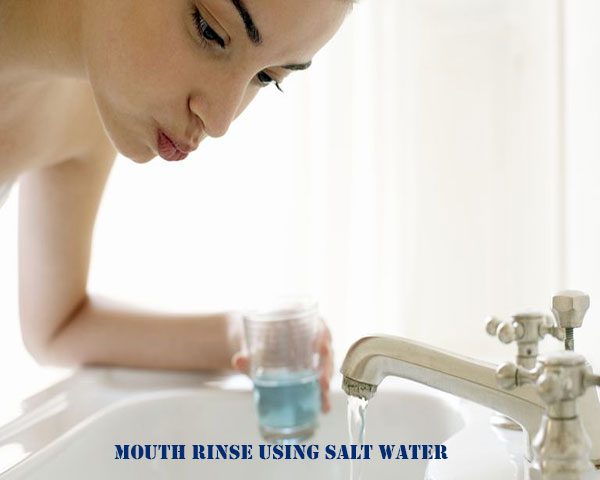
Salt is beneficial for your affected gums in two ways; one it is a good anti-bacterial agent which helps to reduce the bacteria in your gums as well as prevent it from growing. The second salt is a vasoconstrictor which means it helps in reducing gum bleeding by constricting the blood vessels. These two properties make salt a good remedy for gingivitis. The proper technique for use of salt is to mix a teaspoon of salt in about half a glass of lukewarm water and mouthwash using this solution. This process can be repeated for about two to three times a day for best results.
Lemon mouthwash
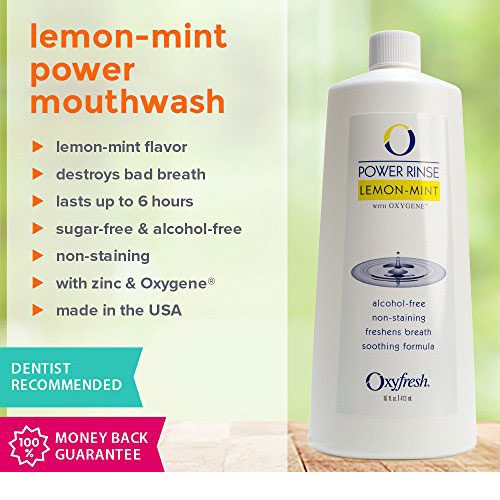
Lemon juice is citrus in nature which makes it a rich source of vitamin C. Vitamin C is an antioxidant and is excellent for maintaining the health of your gums. It also has good antibiotic and antioxidant properties which reduces the bacterial infection and ensures a speedy recovery. One alternative of using lemon is to simply rub the lemon peel on to the gums for about 4-5 minutes. Alternatively, lemon juice can be added to about half a glass of lukewarm water and this solution can be used as a mouthwash. Lemon mouthwash also curbs the bad breath which is an effect of the bacterial infection and maintains the freshness of your mouth.
Peppermint mouthwash
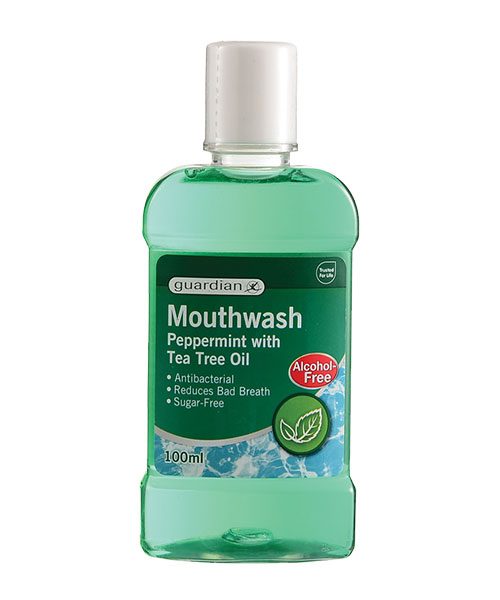
We are all aware of multiple uses of peppermint oil and very commonly make use of peppermint in our day-to-day lives. It is most commonly used as a flavoring agent or to add fragrance to products. When considering its medicinal properties, peppermint is used to relieve symptoms of indigestion and heartburn, helps to reduce bacterial infections, provides relief with a cough cold and blocked nose etc. One major property is that it relieves a toothache, inflammation and relieves bleeding gums. These above-listed properties make peppermint oil a suitable candidate for relieving symptoms of gingivitis. All you have to do is put 4-5 drops of peppermint oil, which you can easily find in stores, in lukewarm water and use it as a mouthwash in regular intervals. You can also combine peppermint oil and lemon juice together for effective results.
Turmeric-based paste for gums
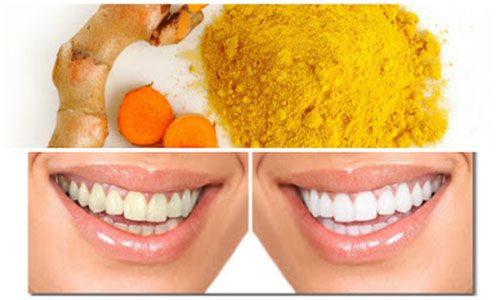
We are well aware of the various benefits and properties of turmeric. It is a member of the ginger family and has abundant use in traditional Ayurvedic and Chinese medicine. When we consider turmeric from the perspective of gum infections, it has curcumin an agent which has excellent anti-oxidant and anti-inflammatory properties. Turmeric is also a natural antibiotic agent and it is been used as a traditional medicine since ages for wound healing. These properties combined together makes turmeric an ideal agent for gum infection and gum bleeding. Ideally, you should make a paste of turmeric either using water or honey and rub on to the gum surface. This can be repeated 2-3 times a day for best results.
A paste made up of Baking soda
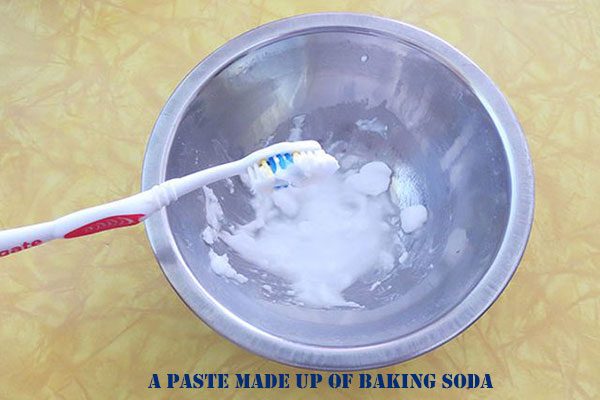
Baking soda is nothing but sodium bicarbonate; it is alkaline in nature and is very effective for gum infections. We normally use baking soda while making cakes, bread, and other fermented items like idli etc. but whoever thought it has such amazing medicinal properties. Baking soda is antibacterial in nature, it also removes the yellow plaque layer which usually forms on our teeth (which is a home for bacteria) and most important of all it reduces the acid level in the mouth. Excess acid is a budding ground for bacteria and also damages the gums. The alkaline paste, when applied to the gums very effectively, helps in reducing gingivitis. An add-on advantage is the shiny white teeth which are free of plaque and bacteria. This is a very simple yet beneficial home remedy for gingivitis
Freshly extracted aloe vera gel
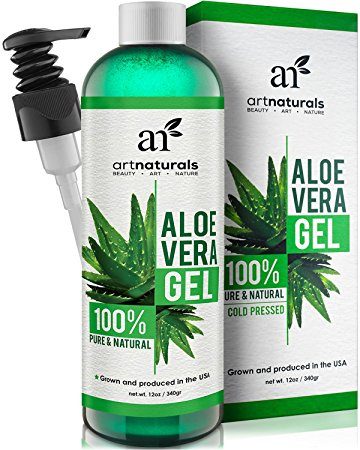
Aloe vera gel is very easily available; all you need to do is cut a fresh aloe vera stem and collect the gel that comes out of it. This gel has to be slowly massaged on to the entire gum surface, emphasizing on the affected area. It is best if you can simply grow a couple of aloe vera plants in your garden; they can very conveniently be planted in pots and placed on your windows and balcony. You might be aware that aloe vera gel is used for reliving pimples and acne; this is due to its antibacterial properties. The same property helps with gum infections too. In addition, aloe vera gel is also a soothing and cooling agent which helps your bleeding gums and provides relief against symptoms of gingivitis.
Use of coconut oil

Using coconut oil (which obviously is very easily available in our household) or sesame oil (again used for cooking purposes) is a very old and effective remedy for gingivitis. Coconut oil or sesame oil, either of the two can be used; generally, coconut oil is preferred as the taste is comparatively familiar to us. The oil can be used as a modified mouthwash; the technique is to fill the mouth with the selected oil and swish or forcefully push it out of the mouth via your teeth. The oil which is antibiotic in nature cleanses the entire dental area including teeth and gums and also forms a protective layer in and around your gums and teeth. This further prevents plaque formation and reduces the symptoms of gingivitis. Performing this procedure twice a day (i.e. in the morning and at night) proves to be a super remedy for gum infections.
Clove oil
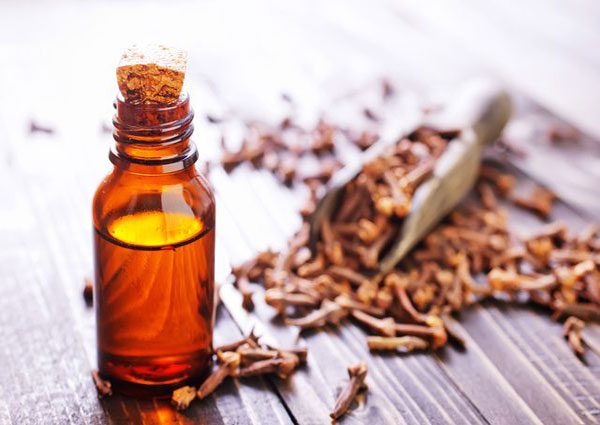
Clove oil again is multi-beneficial and is effective against a toothache, bleeding gums, and inflammation. You simply have to take 3-4 dried clove buds, place them between your teeth and slowly crush them so that they release the clove oil. This clove oil is a good pain reliever, has antibiotic properties and also reduces inflammation; thus is effective in reducing gingivitis.
Green tea
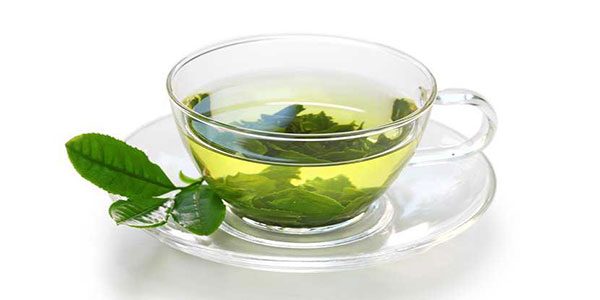
We know that green tea is rich in antioxidants and regular consumption of green tea (either plain or along with honey or lemon etc.) is very beneficial for our body. Talking in specific about the beneficial effects of green tea on our gums, it is antioxidant in nature, has excellent antibacterial properties, reduces bleeding and swelling of gums. Green tea also protects the dental cavity and gums and improves the overall gum health. In addition, it also prevents tooth loss and gives a feeling of good fresh breath by killing bacteria thus reducing bad mouth smell. Ideally, it is best if you consume green tea about 4-5 times a day or even more. However, you can drink it as per your convenience; it will definitely prove to be very effective.
Now you are aware of the natural and herbal remedies for curing and preventing gingivitis. Along with these, it is very important to maintain a very healthy dental routine like brushing at regular intervals, flossing using a proper technique, using mouthwash to keep the oral cavity free of bacteria and visit your dentist regularly for a routine dental check-up. Consult your dentist for the same.
References used:
http://www.webmd.com/oral-health/guide/gingivitis-periodontal-disease
http://www.emedicinehealth.com/gingivitis/article_em.htm
http://www.webmd.com/a-to-z-guides/peppermint-oil-uses-benefits-effects
http://www.healingteethnaturally.com/baking-soda-sodium-bicarbonate.html
http://www.growyouthful.com/comment-ailment-remedy.php?remedyNo=122&ailmentNo=181
http://authoritynutrition.com/oil-pulling-coconut-oil/
http://www.besthealthmag.ca/best-you/oral-health/5-ways-green-tea-is-good-for-your-oral-health/
Clin Microbiol Rev. 2001 Oct; 14: 727–52
Last Updated on June 13, 2019 by Marie Johnson


